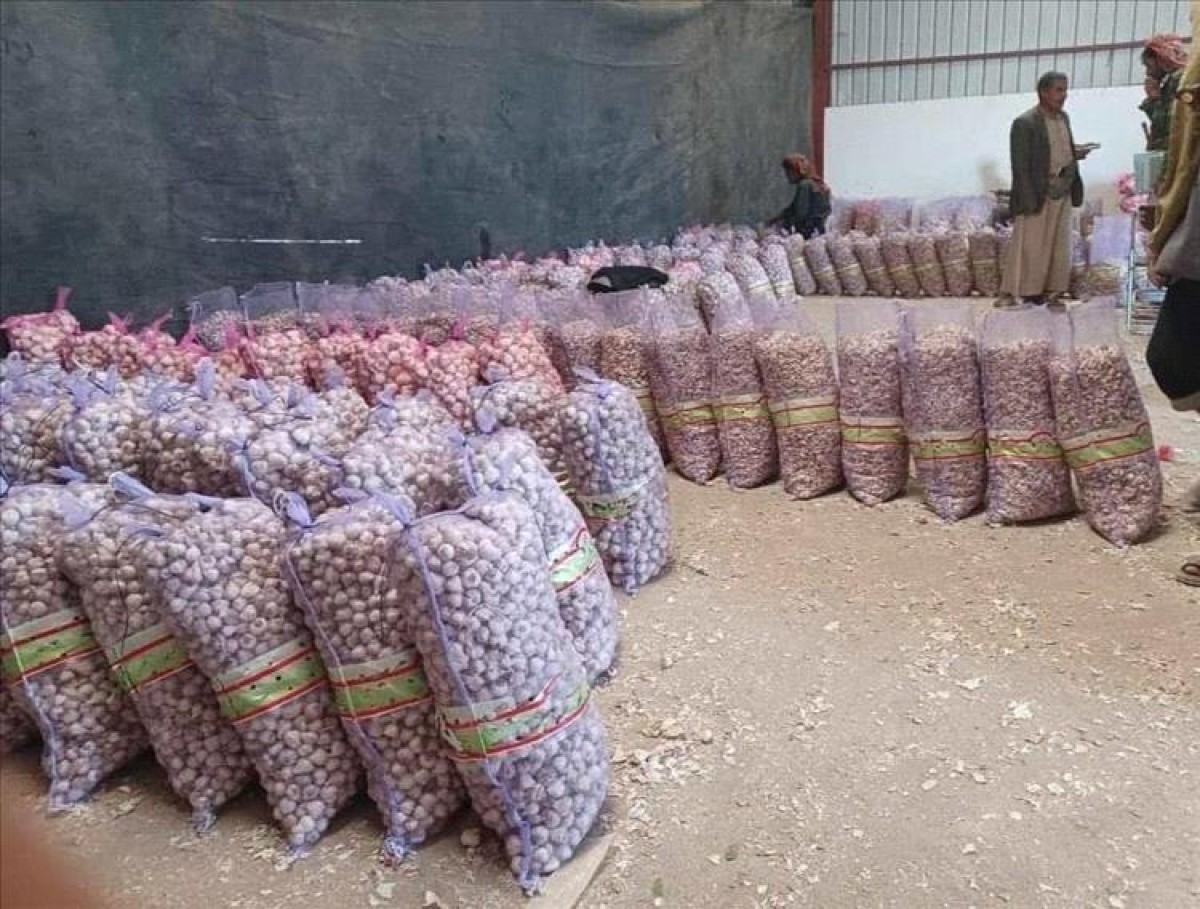Houthi collections exhaust Yemeni farmers


While the leaders of the Houthi group were gathering in the Al -Saleh Mosque in the kidnapped Yemeni capital, Sana'a, to participate in the funeral of the Lebanese leader of Hezbollah, Hassan Nasrallah, dozens of farmers were demonstrating outside this place in protest against the levies that were imposed on them and the losses they were incurred.
And when the group’s leaders left the mosque that the late President Ali Abdullah Saleh established on the outskirts of the seventy square, the protesters shouted, calling for the suspension of injustice and the merits on them.
Farmers complained about the losses they suffered due to the practices of the Agricultural Services Corporation, which imposed fees of 7 percent on the garlic produced locally, and 100 Yemeni riyals per liter of milk (the dollar equals 535 riyals in the group control areas).
According to what the protesters say, they do not receive any support from this institution, which is headed by the Houthi leader Abdul Salam Al -Ezzi, so that such levies are imposed on them, and no one knows the extent of the legality of these levies, nor where you go, nor who controls their disbursement.
The farmers also complained of preventing them from selling their products in the market by informing the security points by preventing the passage of any carrier carrying the garlic product, taking it and cargo to the headquarters of the Houthi Foundation and detaining it until this percentage is paid.
The affected people emphasized that the prices of garlic were greatly fired as a result of allowing large quantities imported from abroad, and the absence of an infrastructure for storage so that the markets are not drowned in the product during the harvest.
They indicated that the prices decreased significantly from 1,200 riyals per kilogram (about two dollars) at the end of last year, to reach 400 riyals now, and confirmed that they went to the leadership of the Ministry of Agriculture in the Houthi government, which no one recognized but could not do anything.
The Houthi group had announced the prevention of importing garlic from abroad with the aim of encouraging the expansion of its cultivation locally, and confiscated any amount that reaches its areas of control, but farmers and marketers recently complained about the increase in the levies that are imposed on them for the benefit of the Agricultural Services Corporation that provide them with seeds and some fertilizers as this is within their jurisdiction since its establishment two decades ago, and the involvement of Houthi leaders in the entry of the quantities Big garlic imported, which affected prices.
Those affected are wondering about the reasons for these practices, and they said: “How can those who claim that he encourages local agricultural production to do like what the Agricultural Services Corporation does, while we deserve encouragement, facilitating procedures, not extortion, and the complexity of the sale.”
The Ministry of Agriculture in the unrecognized coup government had concluded an agreement with a group of merchants importing local garlic and ensuring the stability of its price, contrary to the demands of farmers that the price per kilo should not be less than two dollars.
I also committed to setting a fair price and purchasing the amount produced from contracting farmers. The agreement also stipulated that any merchant who does not abide by the agreement will be inserted into a black list and is deprived of importing garlic from abroad.
According to sources working in the agricultural sector, during a short period after this agreement, the importers returned to put many items and demand large guarantees from contracting farmers and associations, and accused the General Organization for Agricultural Services of granting merchants permits to import garlic from abroad when needed.
garlic is one of the important agricultural crops in Yemen, where it is widely grown in cold regions, and the average production of the country is about 5 thousand tons annually after it was about 8 thousand tons in 2007.